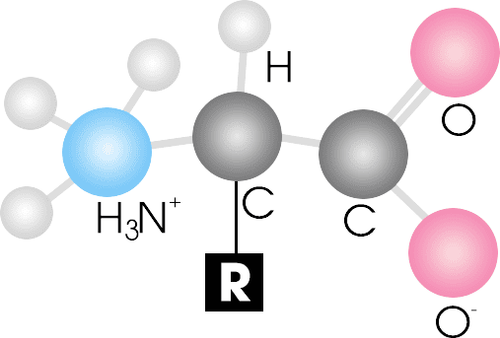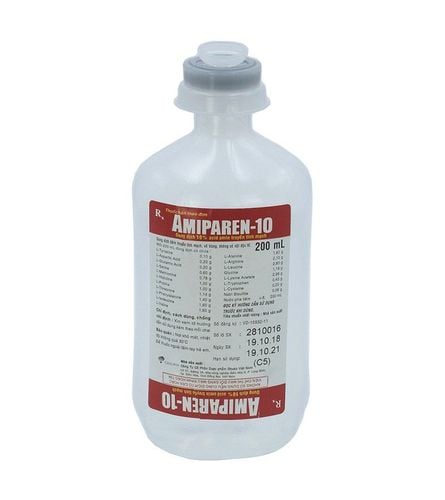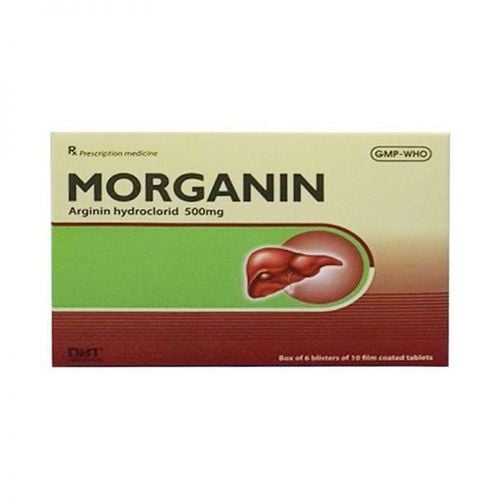This is an automatically translated article.
Taurine is an amino acid found in many foods and often added to energy drinks. Many people take taurine as a supplement, and some researchers call it a "miracle molecule." Taurine has been shown to have a number of health benefits, such as reducing disease risk and improving athletic performance.
1. What is Taurine?
Taurine is a sulfonic amino acid that the body can produce, and is especially concentrated in the brain, eyes, heart, and muscles.Unlike most other amino acids, taurine is not used to build proteins. Instead, it is classified as an essential amino acid. The body can produce taurine and it is also found in certain foods. However, some subjects, such as those with specific medical conditions such as cardiovascular disease or diabetes, may benefit from taurine supplementation.
2. Sources of Taurine
The main sources of taurine are animal foods, such as meat, fish and dairy. Although some processed vegetarian foods contain added taurine, there is no guarantee that these will provide adequate daily amounts.
Taurine is also commonly added to sodas and energy drinks, which can provide 600 - 1,000 mg of taurine in an 8-ounce (237-ml) serving.
However, soda or energy drinks should not be consumed in large quantities as other ingredients can be harmful.
Because the form of taurine used in supplements and energy drinks is often synthetic (not of animal origin), these products are suitable for vegetarians only. The average diet provides about 40-400 mg of taurine per day

Taurine có mặt trong hầu hết các thực phẩm động vật
3. Benefits of Taurine
Has many functions in the body Taurine is found in a number of organs and its roles include:
Maintaining proper hydration and electrolyte balance in cells Forming bile salts , which plays an important role in digestion Regulates minerals such as calcium in cells Supports general function of the central nervous system and eyes Regulates immune system health and function Taurine is a conditionally essential amino acid so a healthy person can produce the minimum amounts needed for the above essential daily functions.
However, higher amounts of taurine may be required in rare cases, making taurine necessary in some people, such as those with heart or kidney failure, premature babies needing injections vein.
When deficiency occurs during fetal development, it leads to severe symptoms such as impaired brain function and poor blood sugar control.
Helps fight diabetes Taurine can improve blood sugar control and fight diabetes. Long-term taurine supplementation lowers fasting blood sugar in diabetic rats without any changes in diet or exercise.
Fasting blood sugar is important for health, as high levels are a major risk factor for type 2 diabetes and many other chronic diseases.
Some animal studies suggest that increasing taurine intake may help prevent type 2 diabetes by lowering blood sugar and reducing insulin resistance. In addition, people with diabetes tend to have lower taurine levels, which is another indicator that taurine may play a role in the disease. However, more research is still needed to confirm this.

Taurine giúp điều trị bệnh tiểu đường
Improves Heart Health Taurine may help reduce the risk of cardiovascular disease.
Research shows a link between high taurine levels and reduced mortality from heart disease, as well as lower cholesterol and blood pressure.
Taurine may help lower blood pressure by reducing resistance to blood flow in the walls of your blood vessels. It can also reduce nerve impulses in the brain to raise blood pressure.
In a two-week study in people with diabetes, taurine supplementation significantly reduced the stiffness of the arteries, which in turn could potentially help the heart pump blood around the body more easily.
In another study in overweight people, 3 grams of taurine daily for seven weeks reduced body weight and improved several risk factors for heart disease.
In addition, taurine supplementation has also been found to reduce inflammation and reduce arterial thickness. When combined, these effects can significantly reduce the risk of heart disease.
Increased exercise performance Taurine may also have benefits for athletic performance.
In animal studies, taurine helped muscles work harder, longer, and increased muscle contraction and force generation. In rats, it reduced fatigue and muscle damage during exercise.
In human studies, taurine has been shown to remove waste products that lead to fatigue and muscle burn. It also protects muscles from cell damage and oxidative stress.
Human studies indicate that professional athletes supplemented with taurine have improved training performance. Cyclists and runners can cover longer distances with less fatigue.
In addition to these performance benefits, taurine may aid weight loss by increasing fat utilization in the body. In cyclists, supplementing with 1.66 grams of taurine increased fat burning by 16%.

Taurine giúp tăng hiệu suất tập thể dục
Other Health Benefits Taurine has a surprising range of potential health benefits. It can improve many different functions in your body, such as vision and hearing.
In one human study, 12% of participants taking a taurine supplement completely eliminated ringing in the ears that are associated with hearing loss.
Taurine is also present in large amounts in the eyes, research shows that eye problems can occur when this substance starts to decrease. Increased concentrations are thought to optimize vision and eye health. In addition, it helps regulate muscle contractions, so taurine can reduce seizures and help treat conditions like epilepsy.
Finally, taurine can protect liver cells against free radical damage and toxins. In one study, 2 grams of taurine taken three times daily reduced markers of liver damage and reduced oxidative stress. However, more research is needed on most of these benefits.
4. Taurine side effects and usage
According to the best available evidence, taurine has no adverse effects when used in recommended doses.
Although there are no direct problems from taurine supplementation, several deaths in athletes in Europe have been linked to energy drinks containing taurine and caffeine. This has led some countries to ban or restrict the sale of taurine. However, these deaths may have been due to large doses of caffeine or some other substance the athletes were taking.
As with most amino acid based supplements, other problems can potentially arise in people with kidney problems.
The most common dosage of taurine is 500 - 2,000 mg per day.
Taurine safety research shows that, in doses up to 3,000 mg per day for life, it is still safe. While some studies may have used higher doses for short periods of time, 3,000 mg per day should help you maximize benefits while staying within a safe range.
When overdosing or experiencing unwanted effects of taurine, you should inform your doctor or go to the nearest medical facility immediately for appropriate diagnosis and treatment plan.
Please dial HOTLINE for more information or register for an appointment HERE. Download MyVinmec app to make appointments faster and to manage your bookings easily.
Source: healthline.com












